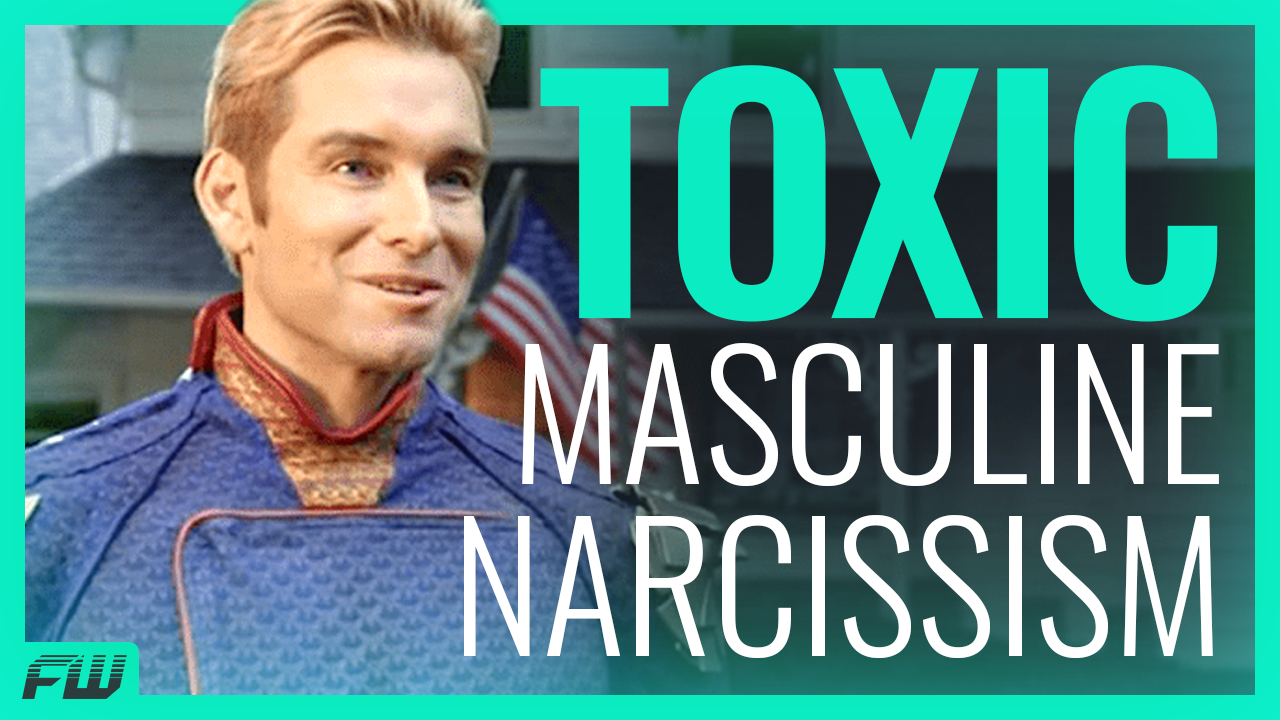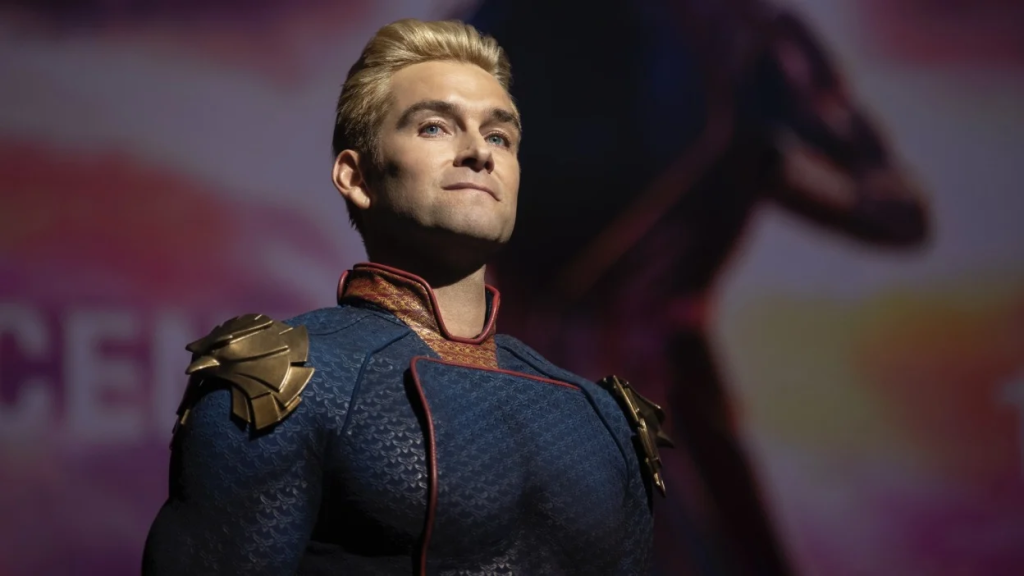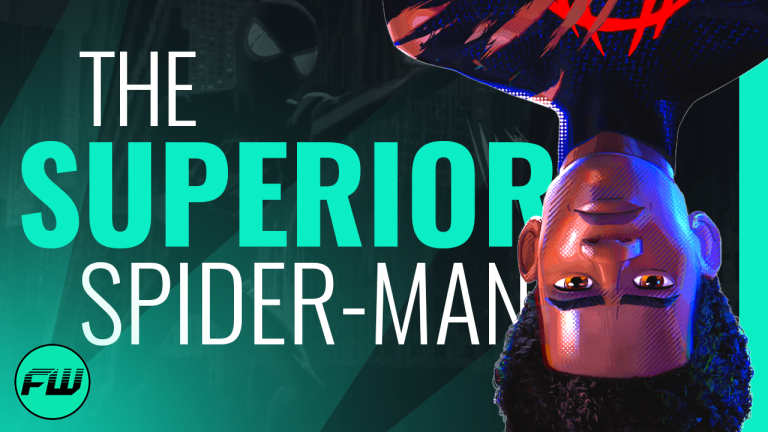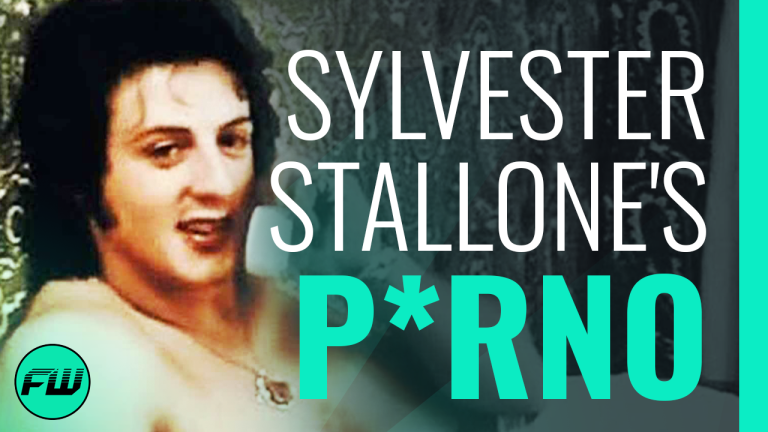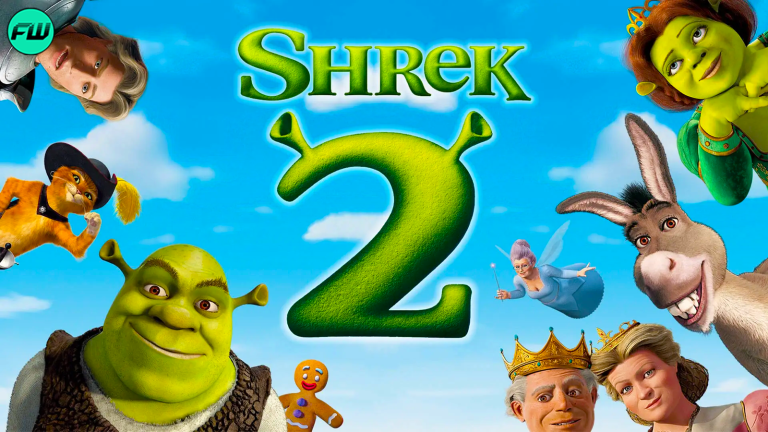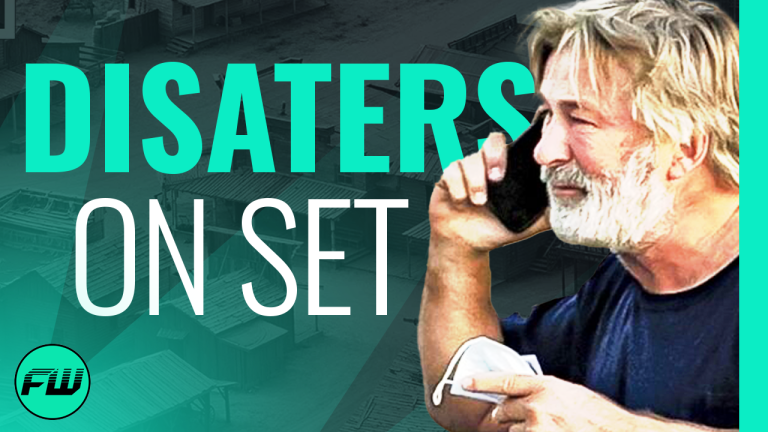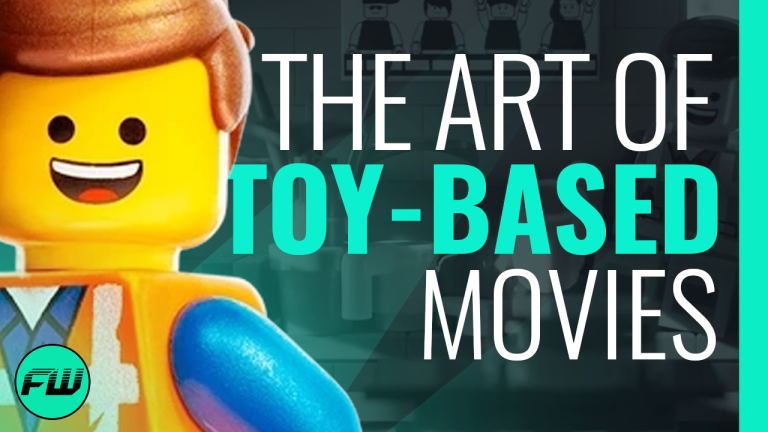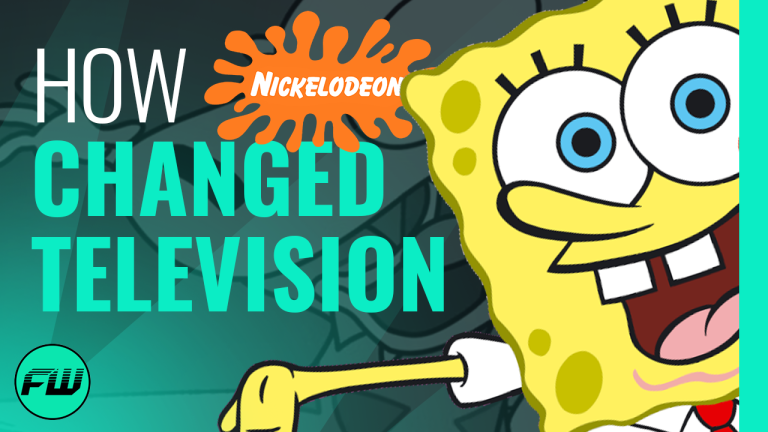FandomWire‘s latest Video Essay explains how The Boys explores unchecked toxic masculine narcissism.
Check out the video below:
Subscribe & hit the Notification Bell so you never miss a video!
The Boys & Toxic Masculine Narcissism
“Toxic Masculinity” may be a recently coined phrase. Some still look at the phrase as nothing more than a contemporary, trendy buzzword. However, as a concept, toxic masculinity has been prevalent in society for a long time. In the vast majority of cases, traits associated with toxic masculinity include narcissism and an overly inflated ego.
In the real world, when someone’s ego begins to inflate, someone else will usually be around to take them down a notch or two. Whether that be a pleasant intervention held by a concerned friend or a more confrontational approach by a short-tempered stranger, the majority of the population usually has someone to stop them before their narcissism takes over.
The question then becomes; what happens if no one is powerful enough to challenge that toxic growth of one’s ego? The closest real-world parallel that we have to compare is those with political power. In recent years, certain prime ministers and presidents have been accused of allowing their ego to take over when making decisions instead of basing their choices on the will of the people.
This is clearly something that has not gone unnoticed by the writers of The Boys.
One of the key things which makes the Amazon Prime adaption of The Boys so great is how they took an already solid piece of source material – in the form of The Boys comics by Garth Ennis – and expanded on it.
The main goal of the comic was to explore what superheroes would look like in the real world. How would super-powered beings be viewed in the eyes of the common man? Would they be regarded as deities? As celebrities? As political figures? Would they ever have the best interests of humanity in mind, given how disconnected they are from it?
In an article by The Digital Fix, showrunner for The Boys; Eric Kripke, explained that Garth Ennis told him what his goal was when he first wrote The Boys comic:
“When I first got the job, I had dinner with Garth Ennis, who wrote the comic. And I asked him, ‘What inspired you to make it?’ And he said, ‘I was interested about what would happen if you combined the worst of politics with the worst of celebrity’. And he wrote it in 2006.”
The Boys comic book worked as an examination and criticism of the superhero genre. It forced comic book creators and fans alike to reconsider all-time classic characters such as Superman. It held a mirror up to what was still a fairly niche market at the time.
Superhero fandom has exploded since then. These movies and shows are now mainstream money-making properties, beloved by children and adults alike. There are now more eyes on the superhero genre than there ever was before.
And The Boys TV adaption takes advantage of that. It reflects upon certain trends in the superhero genre, just as successfully as the comics did, however, it also manages to do so much more than that.
The TV show holds a mirror up to celebrity culture, the entertainment industry, and modern society as a whole. It parallels both the onscreen worlds of Marvel and DC while also working as an allegory for sociopolitical issues which we are facing in real life in the western world. And it does it in a way which never feels too on the nose.
The Boys TV show even goes as far as to use one of those common sociopolitical issues as a crux on which the entire dynamic of the show is based around; the toxic masculinity and unchecked narcissism displayed by men in positions of power.
Even the show’s main protagonist is guilty of displaying several of these qualities. Billy Butcher pushes his emotions down inside while behaving in an aggressive and confrontational way, whether the situation calls for that type of antagonistic behavior or not.
With that said, he seems to get a pass. Partially because he is an anti-hero, a.k.a. a character who you aren’t ever really supposed to side with completely. Questionable morals and the ability to do what others cannot in the name of the greater good are two major elements which make Billy’s character so entertaining to watch.
Concessions are also made for Billy because he is not technically a supe. Even if Mother’s Milk does hold a stubborn grudge against the fact that he used Temp V in the most recent season to try and level the playing field, he lacks the extreme sense of superiority which one needs to really embody a stereotypical “supe”.
During the most recent season of the show, we did see Billy’s narcissism amongst his own team exemplified when we witnessed Billy prioritizing his own personal revenge quest against Homelander over Mother’s Milk’s equally important desire for revenge on Soldier Boy. With that said, though, Billy’s sense of superiority is not as great as Homelander’s. While Billy may believe that his opinion is the most important one among his crew, Homelander believes that his say is more important than anyone else’s on planet Earth. Therefore, Billy is still able to be considered the underdog when he goes toe-to-toe with other super-powered characters, despite his obvious narcissistic traits.
Jensen Ackles joined the cast for the most recent season of the show to portray Soldier Boy. Just as Homelander is an examination of how a superman may really behave within our universe, Soldier Boy serves the same purpose, but for Captain America. And yes, unfortunately, that comes with all of the bigotry and tough guy nonsense which was so prevalent in the first half of the 20th century.
Ackles nails the role as a man who has put up a strong, unwavering front for his entire life, even convincing himself that he is a ‘real man.’ Although we learn that he wasn’t actually there during the storming of D-Day, he just showed up in the aftermath for a photo-op.
Instead of confronting his painfully obvious PTSD and other mental demons, he would much rather smoke weed to suppress the emotional turmoil inside him and focus on “completing the mission,” regardless of the cost. He shows no concern for innocents caught in the crossfire of war and seems to share Sean Connery’s horrifically dated views on normalizing domestic abuse. He will blindly follow questionable orders for fear that the alternative would make him look like a “pansy,” despite how objectively corrupt those orders may be.
Due to the era he grew up in and the fact he was the most powerful supe in the world at that time, it is apparent that hardly anyone has ever dared to properly stand up to his toxic ways, and those who did would quickly regret it. He has been allowed to operate in a brash and selfish way for decades, all the while being declared an American hero.
For as bad as Soldier Boy is for glorifying the Greatest Generation, grizzled American Cowboy schtick, there is one character in the show who takes narcissism to a whole new level.
Homelander clearly has a laundry list of unaddressed mental issues, from his obsession with milk to his daydream fantasies about lasering the head and limbs of an unarmed crowd. Though, the major trait which drives everything that he does is that of pure, unchallenged narcissism.
Homelander knows that he is superior to the vast majority of the population on a physical level. However, he has also convinced himself that he is superior on a moral level and on an intellectual level. He feels as though his reasoning outweighs anyone else’s, and therefore he always deserves to have the final say. If he is not given the final say, then he will simply take it.
The difference between Soldier Boy and Homelander is that there is a slight sympathy to Homelander, which is completely lacking within Soldier Boy.
Homelander’s main problem is one that many of us can likely relate to; he just wants to be loved. Nay, he needs to be loved. It is quite sad to consider that no one has ever truly loved him and with the way he is going, no one ever truly will love him.
Sure, his followers may love what he represents, but he will never be truly loved for who he is, and deep down, he knows this. He may be used to hearing the words, “we love you,” however it is only ever being said out of fear. Given his upbringing, he has no real social skills and no idea of how to gain love and trust from another individual.
This isn’t a secret on the show either; other characters are clearly aware of his intense need for admiration and approval.
Very early on in season one, we see that he doesn’t actually consider the other members of the Seven as his family or even his friends, with Black Noir being the only one who Homelander actually respects. He has no one. No parents to speak of, no siblings, and no real friends. He is desperately lonely and, therefore, perpetually unhappy.
Something else which we first saw in Season 1, which has been consistent in character over the following seasons, is how adverse he is to the idea of anything being kept from him. Lies are the one thing which Homelander hates more than anything else in the world.
Madeline Stillwell was the closest thing Homelander has ever had to family. Their relationship was extremely unorthodox and disturbing, but Homelander truly loved her, and he believed that she loved him. When he discovered that she had been keeping the secret of his son from him and learned that she was willing to lie to him, he found himself with no choice but to murder her.
In Season 2, Homelander knew that Becca Butcher and Vought were lying to his son. They were keeping Ryan in a Truman Show-esque environment in order to contain him, and it was Homelander who flew Ryan up above the fake neighborhood to prove to him that he was being lied to. Whilst Homelander exposed the truth to Ryan in order to convince his son to leave with him; he also got to eradicate another lie in the process.
Finally, in Season 3, Homelander comes to the revelation that he had a father, which Black Noir knew about and kept secret for years. This lie is what leads to Homelander killing the only member of the Seven whom he considered a “friend” when he disembowels Black Noir.
Homelander simply cannot stand being lied to, nor can he accept others lying to his son. This is obviously hypocritical, considering how Homelander has lied to countless people over the years in his various TV appearances. He also has no issue with lying to someone’s face, including Ryan.
So it is not the concept of dishonesty which he has a problem with, instead, his issue seems to lie in the idea of things being kept from him. As he is the leader of the Seven and the most powerful man in the world by his own reckoning, he deserves to know everything which is going on all of the time. His ego simply doesn’t allow for secrets to be kept from him as he believes that it takes away from his level of control. Again, this is tied into his narcissism.
Whilst his narcissistic qualities may be detrimental to the rest of the world in certain moments, there is a situation which took place in Season 3 which showed how Homelander’s need to be loved may actually be the only thing saving the human race from total annihilation.
In the first season, Homelander carelessly killed a terrorist who had taken control of a commercial airplane. Whilst his laser vision cut through the terrorist, it also cut through the plane’s controls. Whilst he likely still could have stopped the aircraft from crashing, he decided against it and left the plane full of innocent people to die.
In Season 2, Queen Maeve revealed to Homelander that she had a video from inside the plane showing him flying away. She threatened to release the video if he did not let Ryan go with Butcher. The video then came up again in Season 3, with Starlight threatening Homelander with it. However, this time Homelander explained that the video won’t stop him. He tells her how he would prefer to be loved by the people, but he would still be content with being feared by them. And to generate that fear, he would destroy Starlight’s hometown along with other populated areas across America.
Although deep down, we know this to be an empty threat. Sure, Homelander may claim that he doesn’t need to feel loved, but his ego would say otherwise. Narcissists in the real world require constant admiration, and Homelander is no different.
Season 3 also marked the first time that we saw Homelander display fear. After he sustained a bruise during the Herogasm battle, he used concealer to cover the mark when he went to threaten Maeve. She points it out during their conversation, and for a brief, fleeting moment, Homelander goes from being the one with control to a petrified child.
Just as narcissists in the real world are utterly terrified of being thought of as weak, so is Homelander. Despite the fact that deep down, he is harboring this child-like fear within him, he feels as though he must constantly project this false image of unwavering strength to the rest of the world.
All of this works together to show how great a job The Boys does of examining what happens when complete narcissism is allowed to grow and go totally unchecked. Eric Kripke actually summed up the entire concept at another point in the same interview with The Digital Fix that was mentioned earlier when he detailed just how big the theme of toxic masculine narcissism was when it came to plotting and writing the characters’ arcs in the show.
“For me, the meta big theme becomes this meditation on toxic masculinity. And that’s where the tone falls over a lot of the stories. It falls over Butcher’s relationship with Ryan, and it falls over Homelander, constantly having to front as strong.”
That’s all for today, and as always, thanks for watching, and stay tuned for more absolutely diabolical content coming to the channel.
Follow us for more entertainment coverage on Facebook, Twitter, Instagram, and YouTube.

